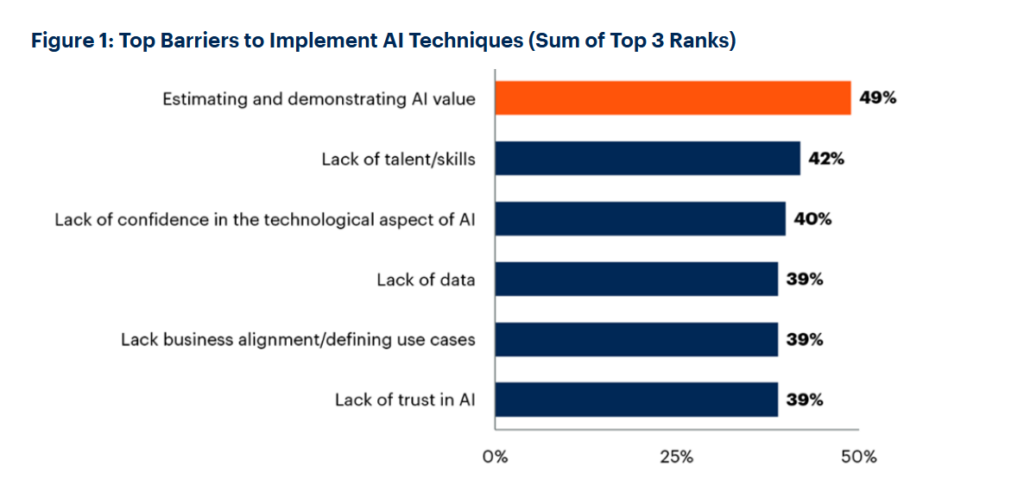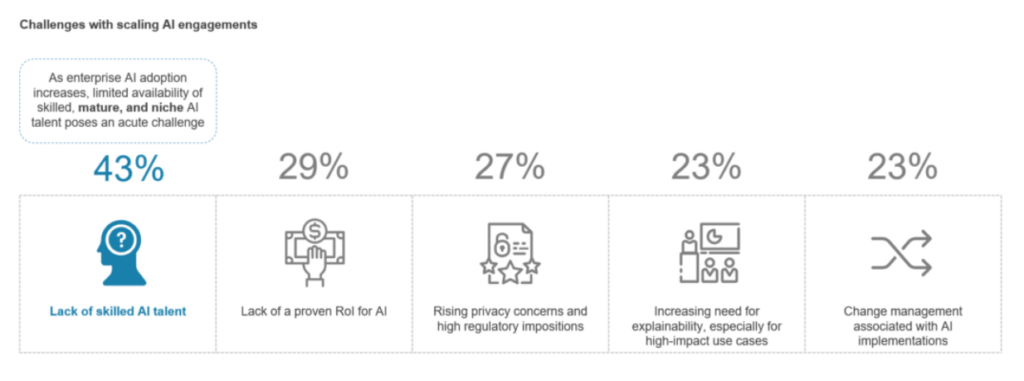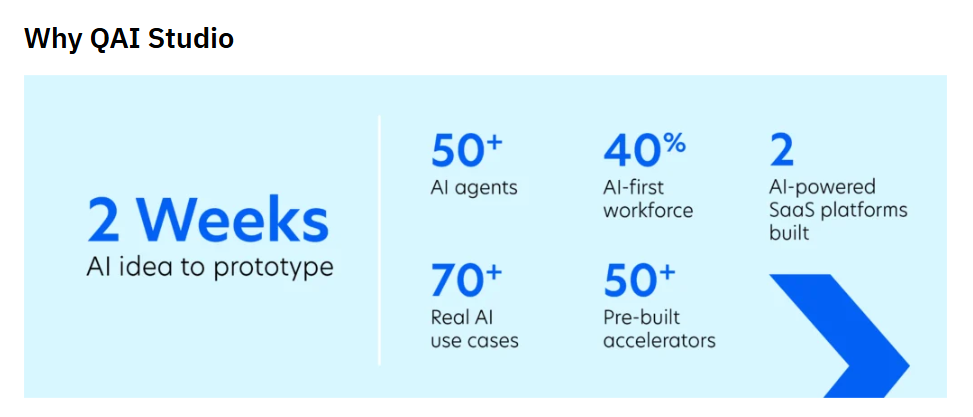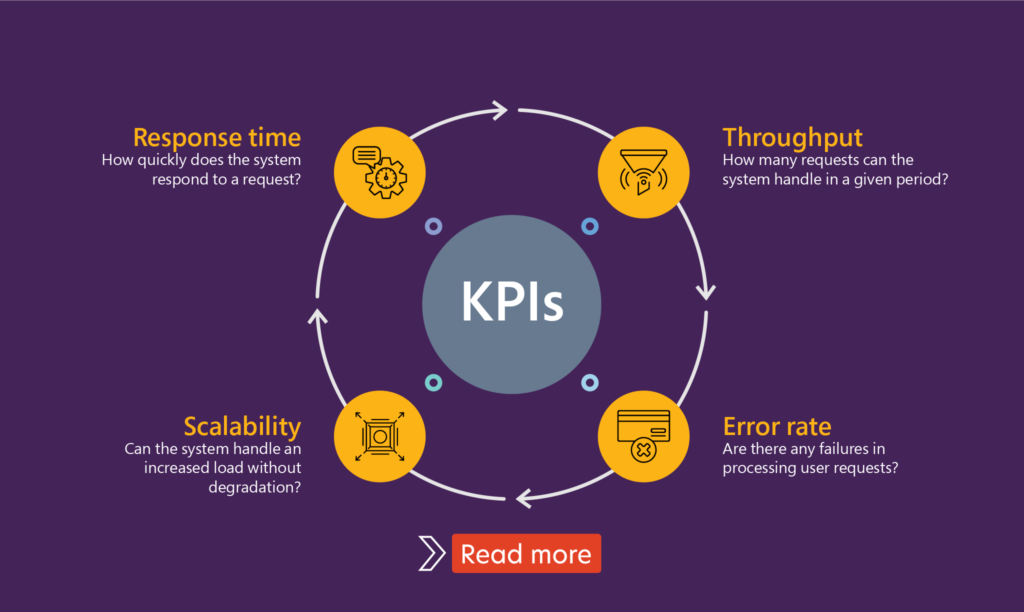AI and the underwater astronaut
A recent conversation about prompt engineering led to the inevitable impressionist rendering of an astronaut eating a burger underwater.
Read moreAutomation in IT operations enable agility, resilience, and operational excellence, paving the way for organizations to adapt swiftly to changing environments, deliver superior services, and achieve sustainable success in today's dynamic digital landscape.
Next-generation application management fueled by AIOps is revolutionizing how organizations monitor performance, modernize applications, and manage the entire application lifecycle.
AIOps and analytics foster a culture of continuous improvement by providing organizations with actionable intelligence to optimize workflows, enhance service quality, and align IT operations with business goals.
Artificial Intelligence (AI) has emerged as one of the most transformative technologies in recent years. Its potential to disrupt industries, automate processes, and drive innovation is unparalleled. From healthcare to finance, from logistics to marketing, AI promises to reshape entire sectors by providing powerful solutions to age-old challenges.
A recent survey found that 48% of M&A professionals are now using AI in their due diligence processes, a substantial increase from just 20% in 2018, highlighting the growing recognition of AI’s potential to transform M&A practices.

Source: Mckinsey
With the right implementation, AI can give wings to an enterprise’s dreams, propelling them into a future of increased efficiency, personalized customer experiences, and optimized decision-making. Whether it’s through predictive analytics, chatbots enhancing customer service, or supply chain optimization, AI has the power to deliver both immediate and long-term business value. As a result, organizations are increasingly investing in AI initiatives, attracted by its potential to generate new business models, streamline operations, and unlock unprecedented insights.
However, despite the undeniable promise of AI, many enterprises struggle to successfully implement AI initiatives. The hurdles they encounter—ranging from technical challenges to financial barriers—often prevent them from fully realizing AI’s potential. Instead of soaring to new heights, many organizations find themselves stuck, their AI aspirations grounded, unable to take flight.

Source: Gartner
So, why is it that despite its growing popularity, AI success is still elusive for many organizations? Let’s take a deeper dive.
One of the biggest barriers to AI implementation is the shortage of qualified talent. AI is a highly specialized field that requires expertise in data science, machine learning, deep learning, and AI engineering. Yet, companies often struggle to hire, retain, and build teams capable of executing complex AI strategies.

Source: Everest Group
According to the World Economic Forum, 85 million jobs could be displaced by AI by 2025, but 97 million new jobs will be created in fields that require AI skills. However, this shift towards AI-driven workforces highlights a key problem—while demand for AI talent is soaring, supply is lagging. A survey by IBM found that 120 million workers in the world’s 12 largest economies would need reskilling over the next three years due to AI and automation.
Data is the cornerstone of any AI initiative. AI models learn from historical data to make predictions and decisions. However, the vast majority of enterprises struggle with poor data quality, which can severely hinder the effectiveness of AI. Whether it’s fragmented data across different silos, incomplete data, or unstructured data that is difficult to analyze, these issues create significant barriers to AI success.
The state of AI in 2020 by McKinsey found that only 24% of organizations reported being “very satisfied” with their data infrastructure, and just 28% felt their data was in a sufficiently usable state for AI. Enterprises may have large volumes of data, but often it’s fragmented across departments or stored in incompatible systems, making it hard to leverage for AI models.
Moreover, organizations may also face challenges related to data privacy, regulatory compliance, and data governance, which further complicate the task of ensuring data is accurate, accessible, and ready for AI training. Without high-quality, AI-ready data, even the most advanced AI models will fall short in delivering meaningful results.
According to IBM Global AI Adoption Index report , for 21% of enterprises both exploring or deploying AI, the cost of AI infrastructure remains one of the top barriers hindering successful AI adoption. A single GPU card, for example, can cost upwards of $10,000, and many AI projects require large-scale cloud infrastructure, resulting in ongoing costs that can exceed millions of dollars annually. These expenses are especially high when companies lack the internal infrastructure and must rely on cloud providers to deliver the necessary computing resources.
For smaller enterprises or those with limited IT budgets, these infrastructure costs can be a deal-breaker. Even for larger enterprises, the complexity of managing AI infrastructure can divert valuable resources away from other key business functions. The need for high-capacity infrastructure, combined with the rapid pace of AI development, means that companies must continuously invest in upgrades to keep up with the latest advancements.
When it comes to generative AI models, the confusion is compounded by the fact that there is no one-size-fits-all solution. Different models are optimized for different tasks—such as text generation, image recognition, or decision-making—and choosing the wrong one can lead to suboptimal results. For example, a model that excels at natural language processing may not perform as well in image classification or vice versa.
Furthermore, there is the question of whether to use an open-source model or a commercial solution. Open-source models offer flexibility and customization but may require additional resources to manage and fine-tune. Commercial solutions may offer more “plug-and-play” capabilities but come with higher costs and limited customization options.
Enterprises often find themselves paralyzed by this decision-making process. The wrong choice of generative AI model can lead to wasted resources, unsatisfactory results, or missed opportunities.
A recent survey found that only 17% of organizations have established formal AI governance structures, and just 25% have policies for AI ethics and accountability. This lack of oversight increases the risk of unintended consequences, such as biased algorithms or decisions that inadvertently violate privacy laws.
As AI becomes more deeply embedded in business operations, the need for a strong governance framework grows. AI governance ensures that AI models are ethical, transparent, and compliant with relevant regulations. Unfortunately, many organizations fail to establish clear governance policies around AI deployment, which can lead to ethical issues, data privacy violations, and even legal liabilities.
With iAM, every application becomes a node within a larger, interconnected system. The “intelligent” part isn’t merely about using AI to automate processes but about leveraging data insights to understand, predict, and improve the entire ecosystem’s functionality.
Consider the practical applications:
Despite these challenges, there’s hope for enterprises looking to realize their AI ambitions. Quinnox AI (QAI) Studio is designed to be the solution for companies struggling to navigate the complexities of AI implementation.
QAI Studio serves as an innovation hub that accelerates the journey from AI being a mere concept to becoming a transformative reality. At the heart of QAI Studio is rapid prototyping, a powerful approach that allows organizations to test and iterate their AI ideas quickly, without the burden of long development cycles. Whether you’re just starting to explore AI or scaling an existing initiative, QAI Studio provides the tools, expertise, and infrastructure to bring your visionary ideas to life.

QAI Studio’s expert team works closely with enterprises to identify the best AI models and frameworks for specific business needs, ensuring that you deploy the right solutions. Additionally, the studio’s focus on data management ensures your data is properly prepared, structured, and ready to fuel AI development, eliminating one of the most common hurdles to successful AI implementation.
With access to cutting-edge AI tools and infrastructure, businesses can avoid the high costs of building and maintaining complex AI systems. QAI Studio provides the necessary support and resources to help enterprises scale their AI initiatives efficiently, with the ability to rapidly prototype and test ideas before making significant investments.
That’s not all! QAI Studio ensures that AI governance and security are at the forefront of every initiative. From ensuring transparency and fairness to meeting compliance requirements, QAI Studio helps enterprises deploy AI in an ethical, secure, and responsible manner.
Whether you’re starting from scratch or looking to scale, let QAI Studio be the wings that help your AI initiatives soar.
AI is undeniably complex and integrating it across your organization can feel like a huge challenge. Along the way, you’re likely to encounter some roadblocks. But with thoughtful strategy and a clear understanding of the potential hurdles, you can navigate these challenges and maximize the benefits of AI adoption.
Need help on your AI journey or facing specific adoption challenges? Let’s talk about how Quinnox AI (QAI) Studio can assist you in overcoming obstacles and unlocking AI’s full potential for your enterprise. Reach out today!
In the Infinite Game of application management, you can’t rely on tools designed for finite goals. You need a platform that understands the ongoing nature of application management and compounds value over time. Qinfinite is that platform that has helped businesses achieve some great success numbers as listed below:

Qinfinite’s Auto Discovery continuously scans and maps your entire enterprise IT landscape, building a real-time topology of systems, applications, and their dependencies across business and IT domains. This rich understanding of the environment is captured in a Knowledge Graph, which serves as the foundation for making sense of observability data by providing vital context about upstream and downstream impacts.
Qinfinite’s Deep Data Analysis goes beyond simply aggregating observability data. Using sophisticated AI/ML algorithms, it analyzes metrics, logs, traces, and events to detect patterns, anomalies, and correlations. By correlating this telemetry data with the Knowledge Graph, Qinfinite provides actionable insights into how incidents affect not only individual systems but also business outcomes. For example, it can pinpoint how an issue in one microservice may ripple through to other systems or impact critical business services.
Qinfinite’s Intelligent Incident Management takes observability a step further by converting these actionable insights into automated actions. Once Deep Data Analysis surfaces insights and potential root causes, the platform offers AI-driven recommendations for remediation. But it doesn’t stop there, Qinfinite can automate the entire remediation process. From restarting services to adjusting resource allocations or reconfiguring infrastructure, the platform acts on insights autonomously, reducing the need for manual intervention and significantly speeding up recovery times.
By automating routine incident responses, Qinfinite not only shortens Mean Time to Resolution (MTTR) but also frees up IT teams to focus on strategic tasks, moving from reactive firefighting to proactive system optimization.
A recent conversation about prompt engineering led to the inevitable impressionist rendering of an astronaut eating a burger underwater.
Read moreAI can improve the efficiency and effectiveness of chaos engineering. AI algorithms help identify potential false positives
Read moreThe potential of AI analytics to optimize your business operations and drive innovation for seamless customer experience with data-driven solutions
Read moreGet in touch with Quinnox Inc to understand how we can accelerate success for you.